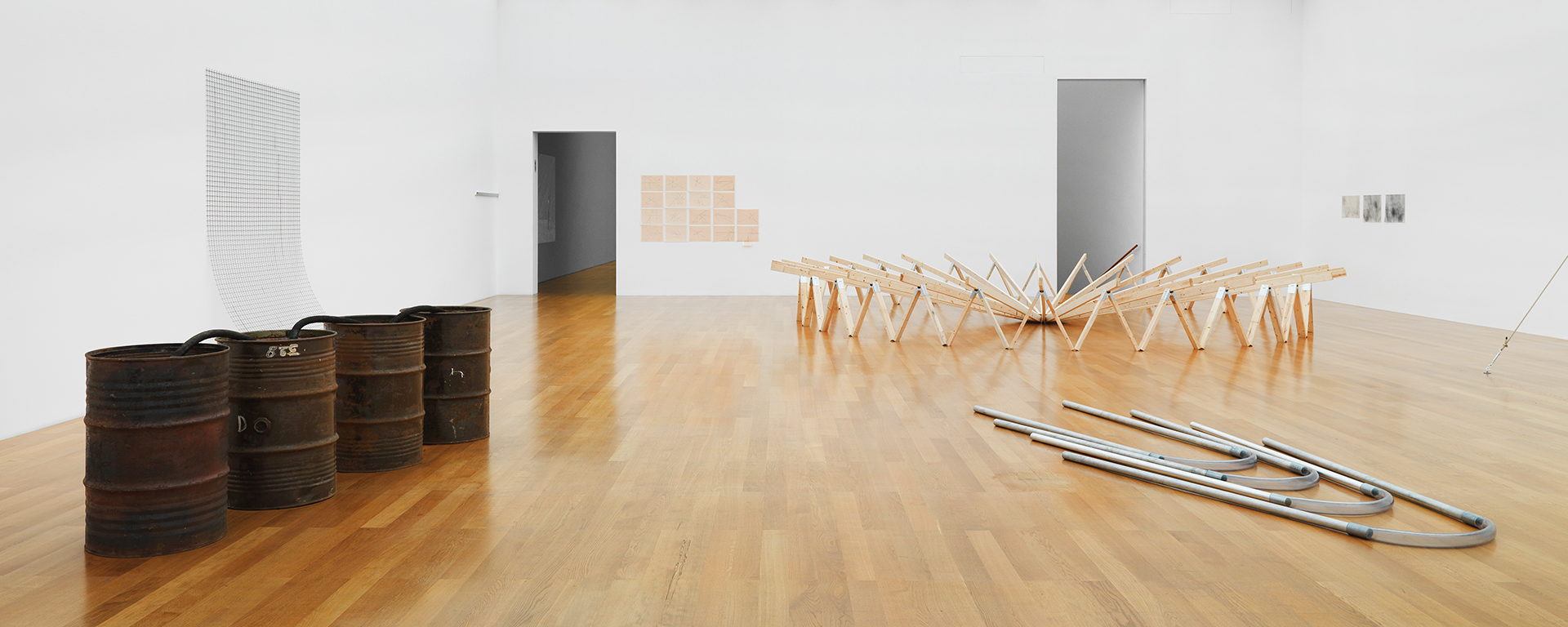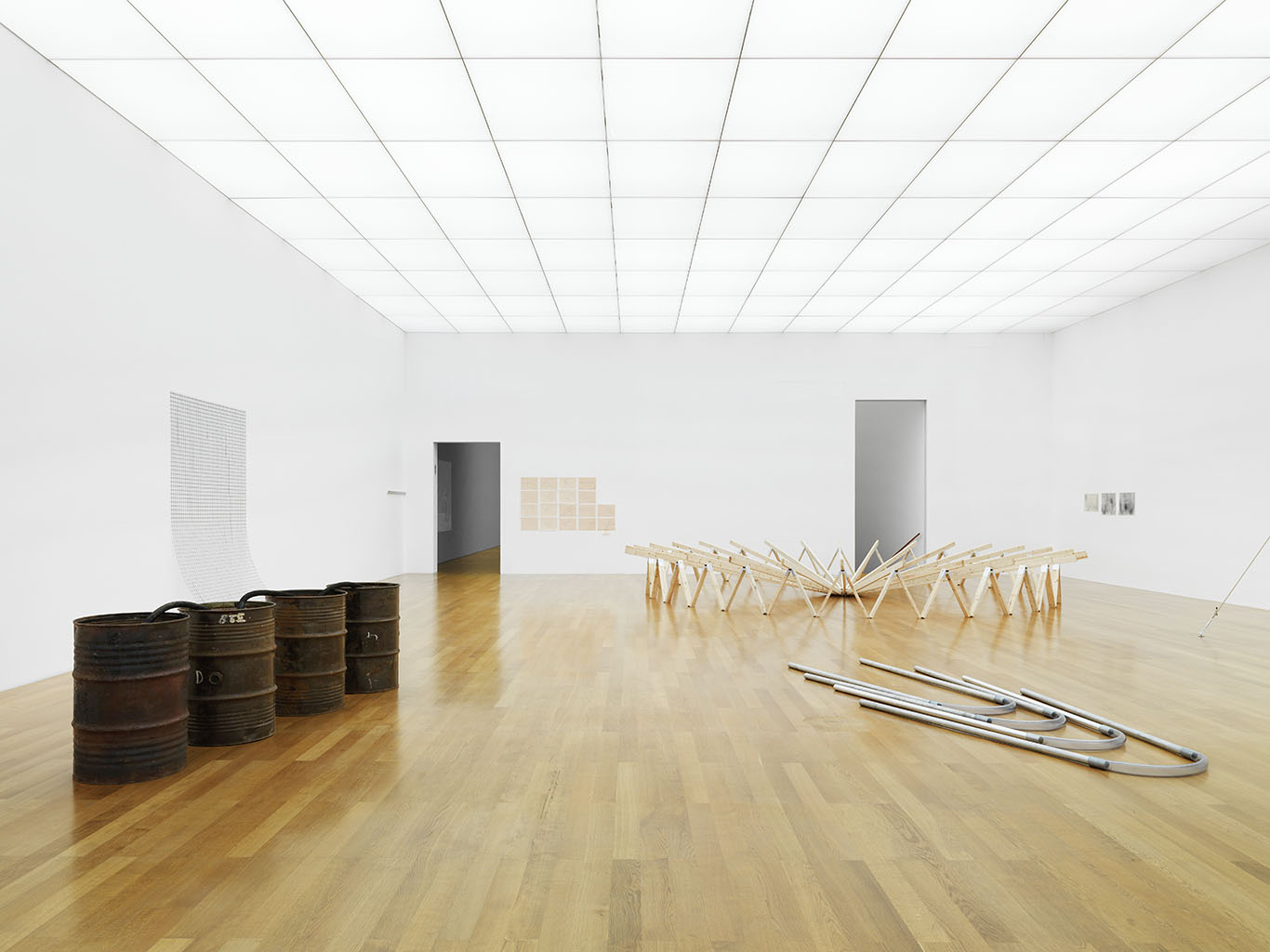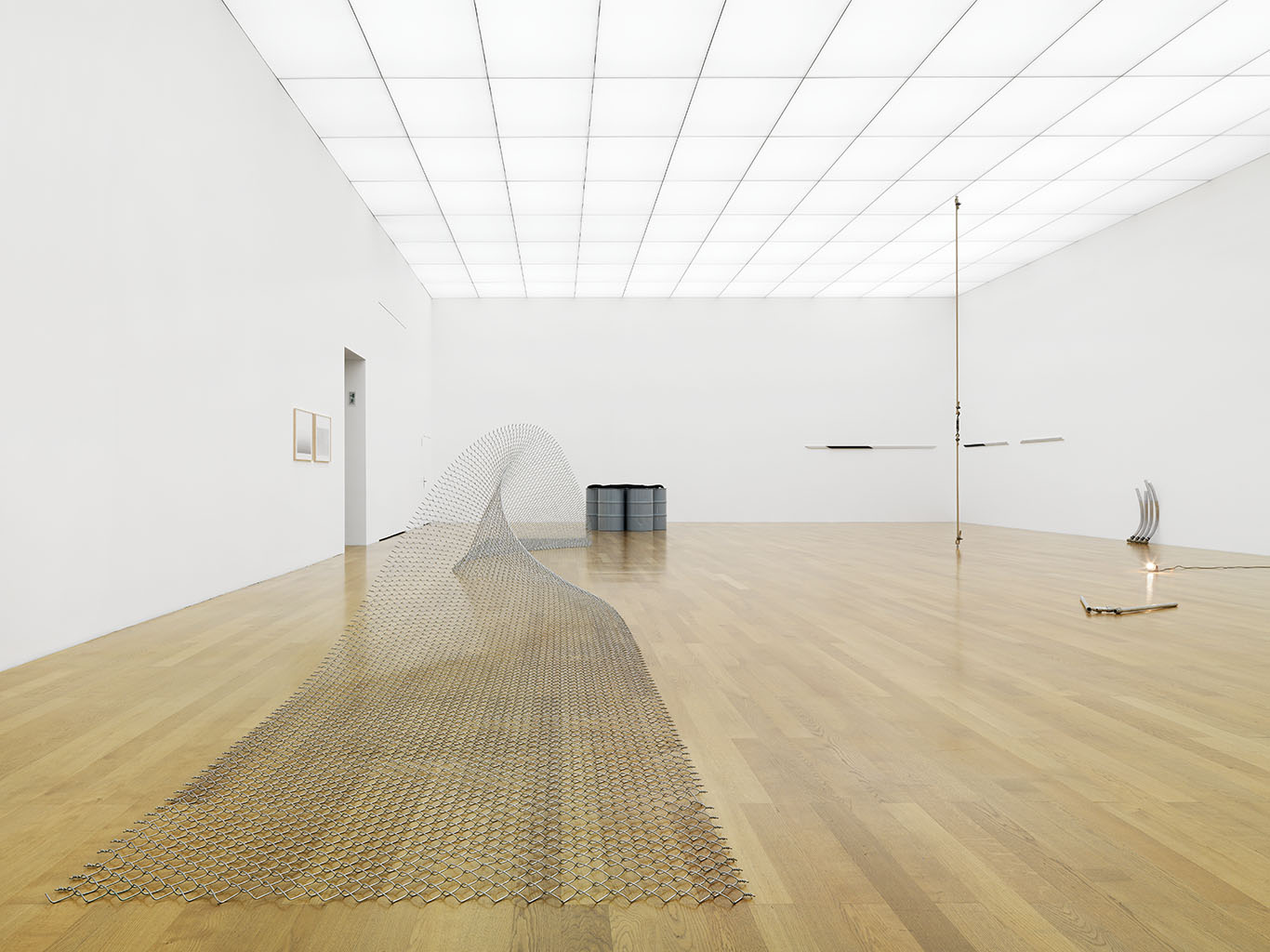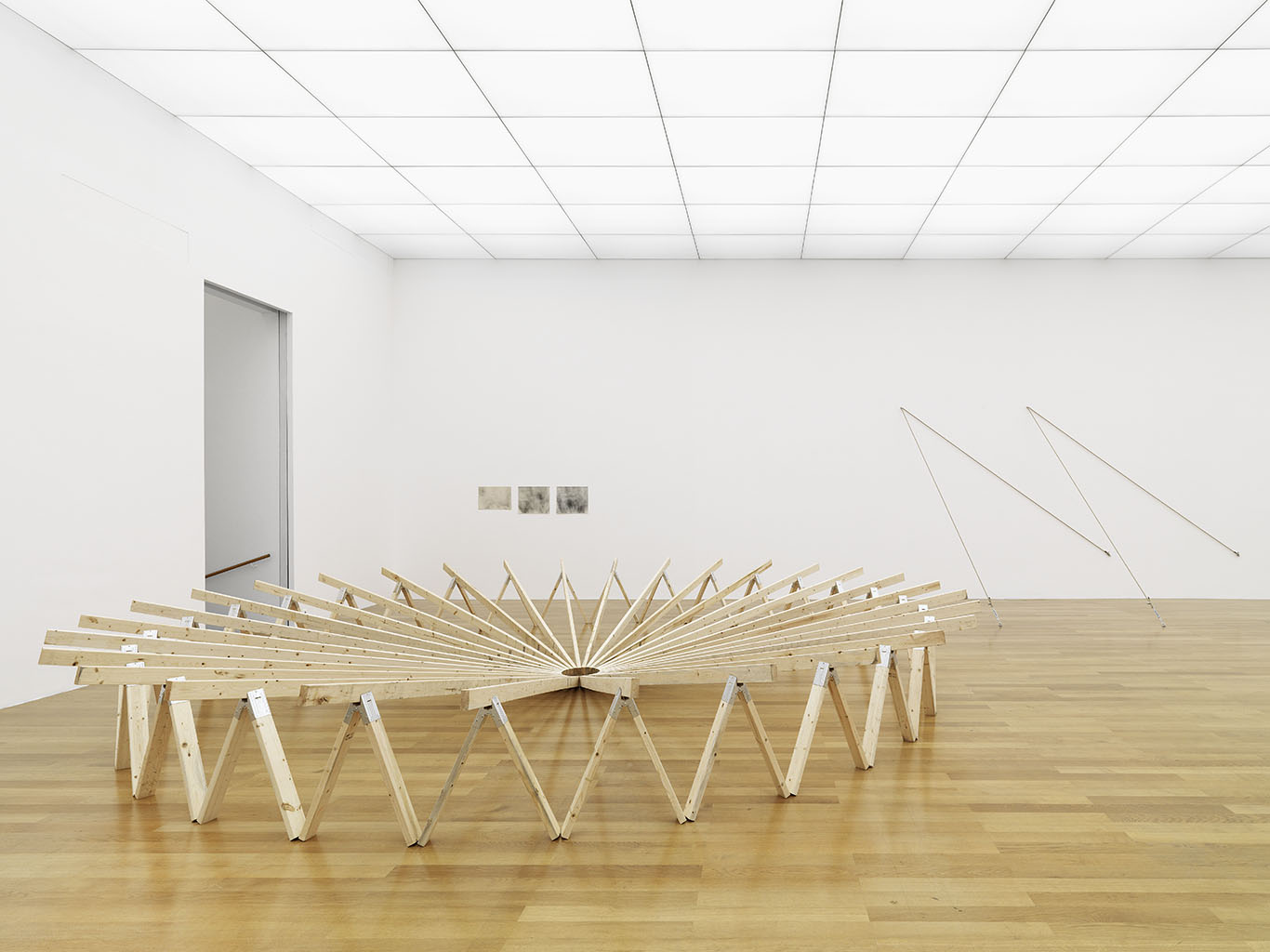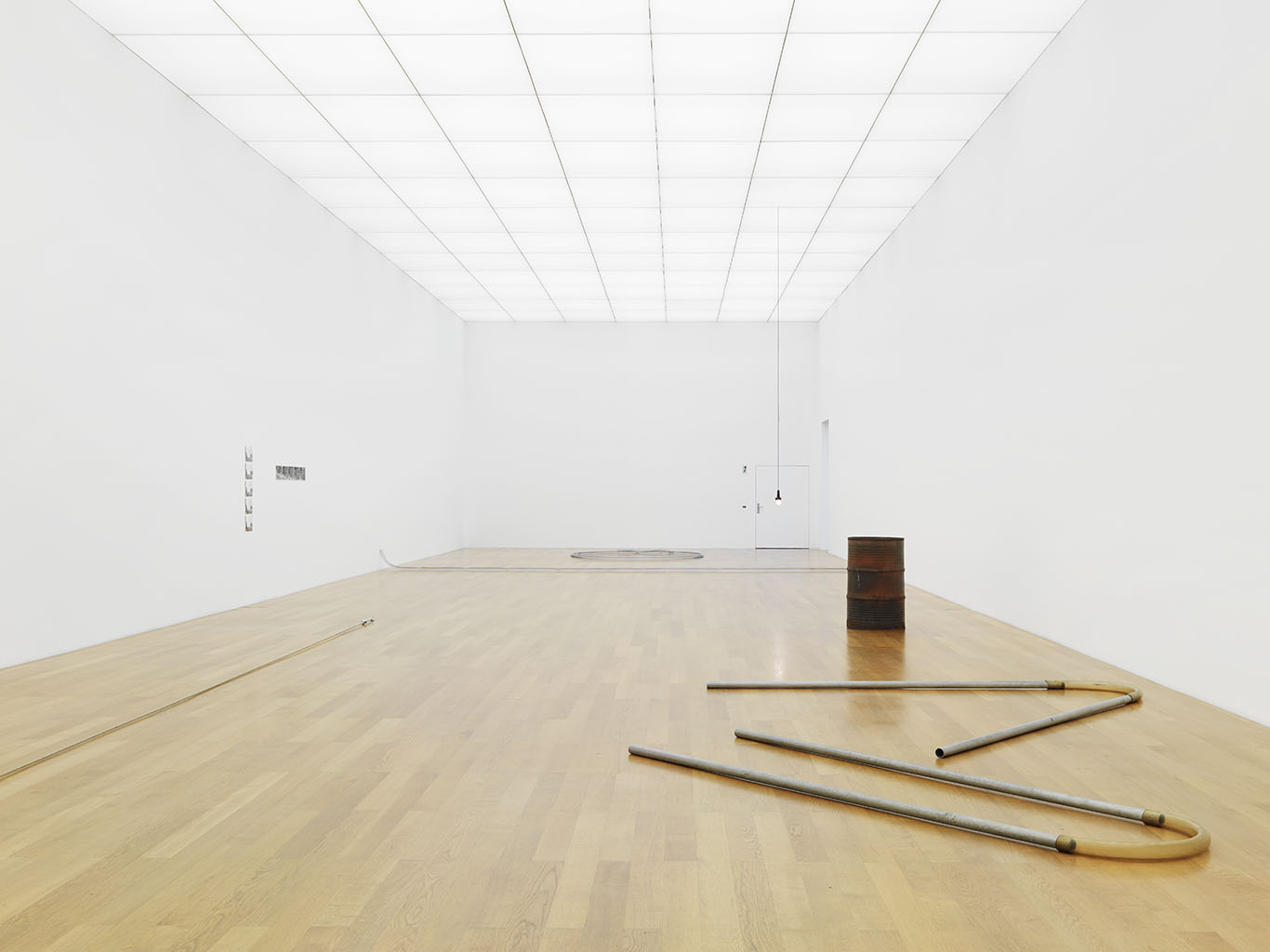In the late 1960s, Bill Bollinger was one of the foremost sculptors of his time, routinely mentioned in the same breath as the likes of Bruce Nauman, Robert Smithson, Eva Hesse and Richard Serra. By the mid-1970s, he had withdrawn completely from the international art scene and his name was all but forgotten. The Kunstmuseum Liechtenstein now presents the first retrospective exhibition of his work. In his short life, Bollinger created an oeuvre that is complex, radical and intense – and well worth rediscovering. At the same time, the show aims to contribute to the current reappraisal of hitherto neglected art positions.
In this major retrospective exhibition, the Kunstmuseum Liechtenstein presents more than thirty of his sculptures and a hundred or so works on paper to a broader public, as well as showing many hitherto unknown documents that give an insight into this remarkable body of work. A typical hallmark of Bollinger's work is his subtle and sensitive treatment of even the simplest, industrially produced materials. His use of aluminium tubing, cables, hosepipes, wire mesh, lamps and wheelbarrows was as radical and direct as it was elegant.
Having studied aeronautical engineering at prestigious Brown University, Rhode Island, Bollinger later turned his attention to painting and embarked on a career as an artist. In the late 1960s, at the height of the space race, he was creating sculptures that explore the gravity, balance and specific properties of a wide variety of materials. The cosmos and water are key elements in the work of Bollinger, who was fascinated by curved space, the vertical and the horizontal, resulting in evanescent, purist, energy-laden works with a radical edge that still have the power to astound us, even today.
Inspired by a transatlantic crossing on a freighter from New York to Europe in 1968, during which he perceived the ocean as a slightly curved and seemingly planar expanse with a sharply defined horizon, Bollinger continued to consolidate and intensify this deep-rooted fascination, creating works in which water plays a crucial role: transparent tubing filled with water arranged in a line, a circle or interconnected configurations. In one work, in which seven painted drums are linked by plastic hosepipes that maintain equal water levels, the sculpture takes on an ornamental, floral quality.
The exhibition, curated by Christiane Meyer-Stoll in conceptual collaboration with Rolf Ricke, is a joint production by the Kunstmuseum Liechtenstein, the ZKM Zentrum für Kunst und Medientechnologie Karlsruhe, where it will subsequently be shown, and The Fruitmarket Gallery, Edinburgh.
